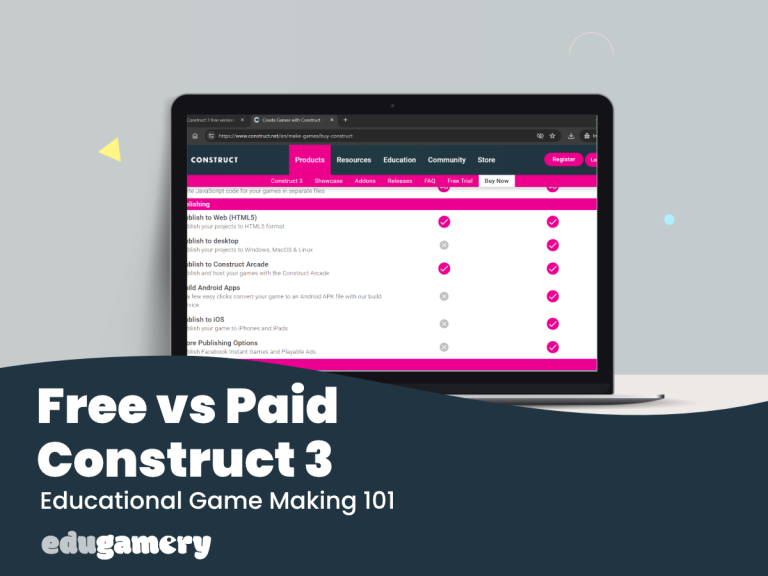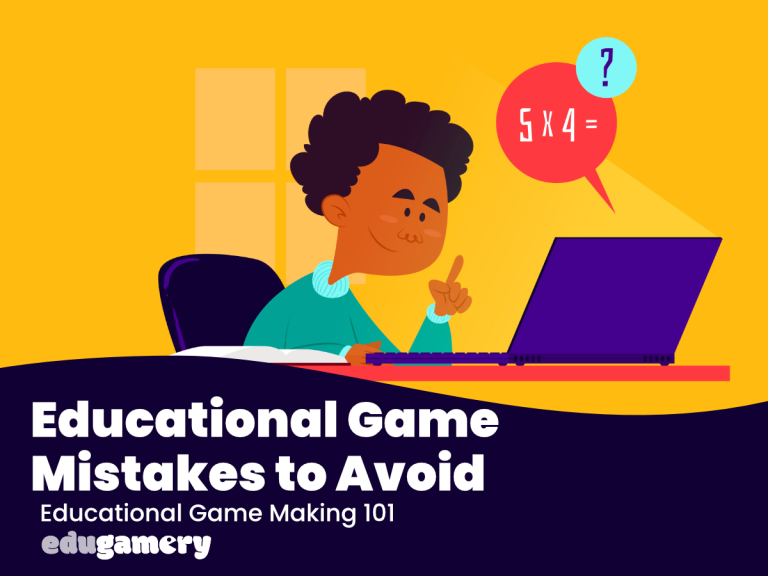Educational computer games (also referred to as digital games or educational video games) are video games which both entertain and educate in equal parts. An educational video game will include fun game-play elements where the student interacts in some way with the game while learning or practicing something. An educational game is more than an interactive worksheet, it will include scores which the student can record and try to beat, fun visual and audio effects which act as subtle cues for the student – and it will be replayable, meaning the student will want to play over and over again, without feeling that they are doing homework!
A good educational game will include an element of challenge and reward. As an example, a player should not be able to win a point by randomly clicking around the screen, they should only get points when they have taken a strategic and correct action.
Educational computer games are:
- Interactive: Educational games let players participate and make choices, not just passively watch or listen.
- Engaging: They use fun elements like stories, challenges, and rewards to keep players motivated to learn.
- Educational: The core purpose is to teach players a specific subject or skill, from math and science to history and critical thinking.
Three things educational computer game aren’t:
- Pure entertainment: While fun is important, the main goal isn’t just to have a good time.
- A replacement for traditional learning: Educational games are best used as a supplement to classroom learning or independent practice.
- Always perfect: Some educational games might not be well-designed or age-appropriate, so it’s important to choose them carefully (or make your own!).
How to Use Educational Video Games
If you are a teacher with an interactive whiteboard in your classroom, you will know first-hand how you can use educational video games with your class. However, educational computer games are also great for using at home or in private lessons. Most educational video games can be played online. Some, such as our Edugamery learning games, can be played both online and offline.
Likewise, most educational video games can be played on mobile as well as desktops (and interactive whiteboards). This means they are handy for playing at home or when travelling. The key is to check the game has been designed for mobile/touch controls as well as mouse/keyboard controls. Most modern games will have been designed with both mobile and computer use in mind.
In order to get the most from educational computer games, students should be encouraged to interact fully with the game (where appropriate). For example, where a game includes audio saying the names of words when the student clicks or taps on a word, the student should be encouraged to repeat the word out loud. This is particularly valuable with language games.
Add Games to Your Website
One of the best ways to use educational games it to add them to your website for students to play directly. This has a number of benefits. Importantly, this means your students remain on your website which you know is a safe and secure area. Being under your control, you know exactly what form of advertising you have on your site and what’s appropriate for your students. Many game portals feature a lot of sometimes inappropriate advertising and content.
Also, when you add games to your website you are giving your students reasons to stay on your site for longer. You can also place games into a private membership area which is only available to your students. If you are a private teacher or tutor, this can be a great benefit for your paid students.
You can also place games within your school blog, giving parents access to games for their children to play during holidays or as an alternative to homework.
Topic Specific Educational Computer Games
Educational games are a great way to help a student learn or revise a specific topic or subject matter. Many game can be adapted to focus on different topics and subjects. This is particularly true when it comes to games for language learners. It is very straightforward to adapt a game which teaches English vocabulary, for example, to a game which teaches Spanish vocabulary.
Our customizable games make it very easy for you to create games which are tailored to your particularly students’ needs.
Educational computer games are another way you can create a fun and interactive learning experience.



